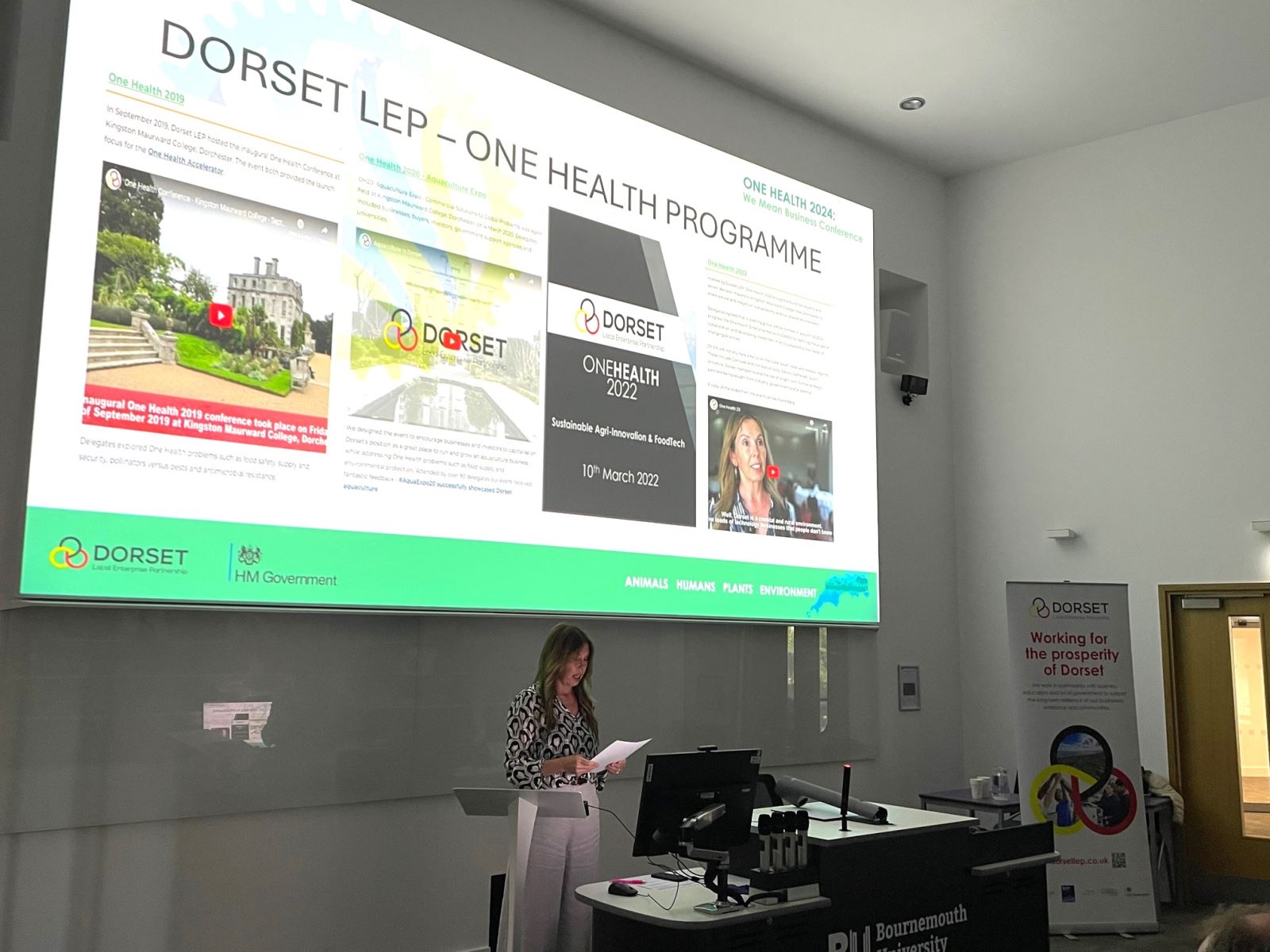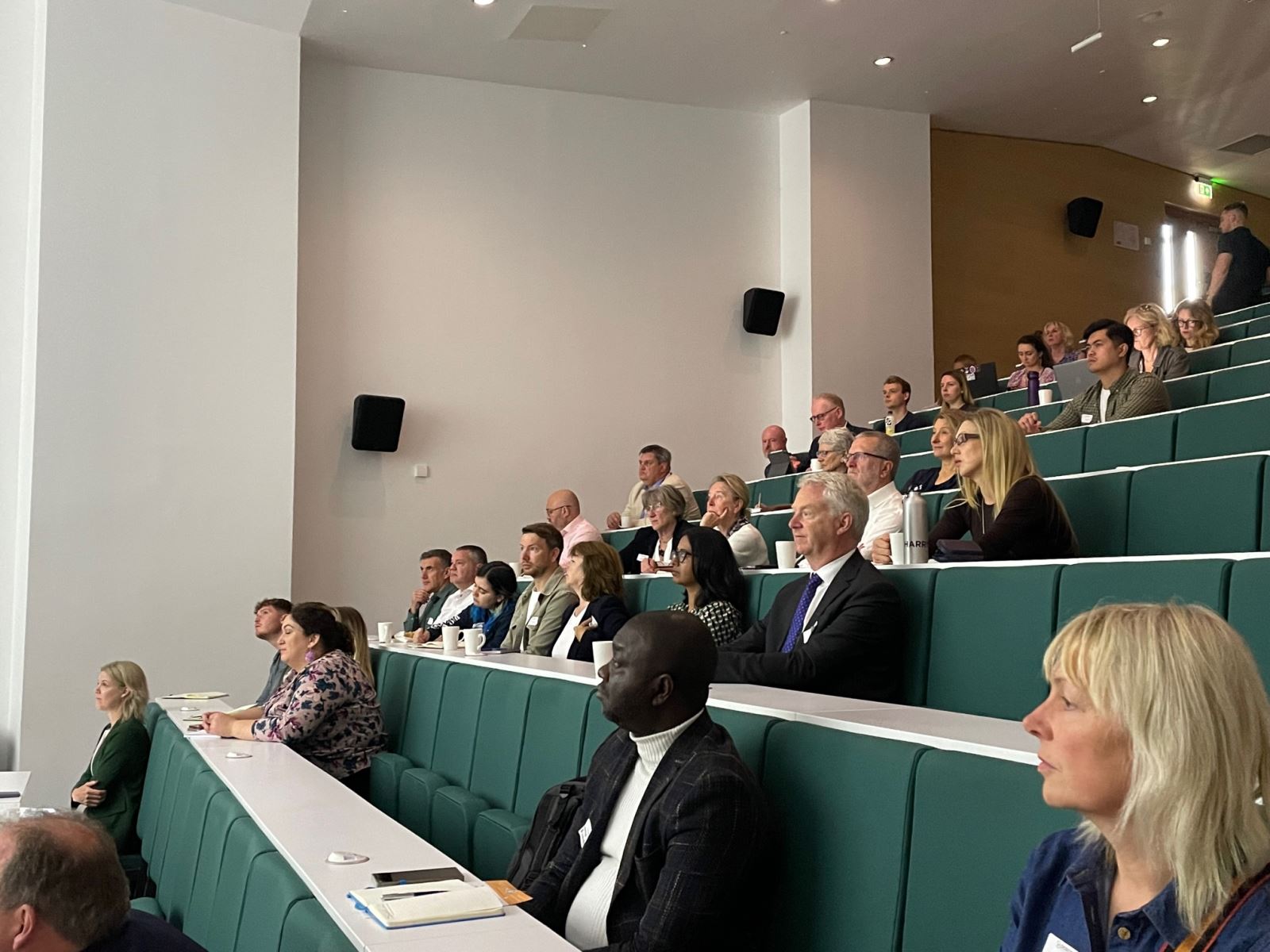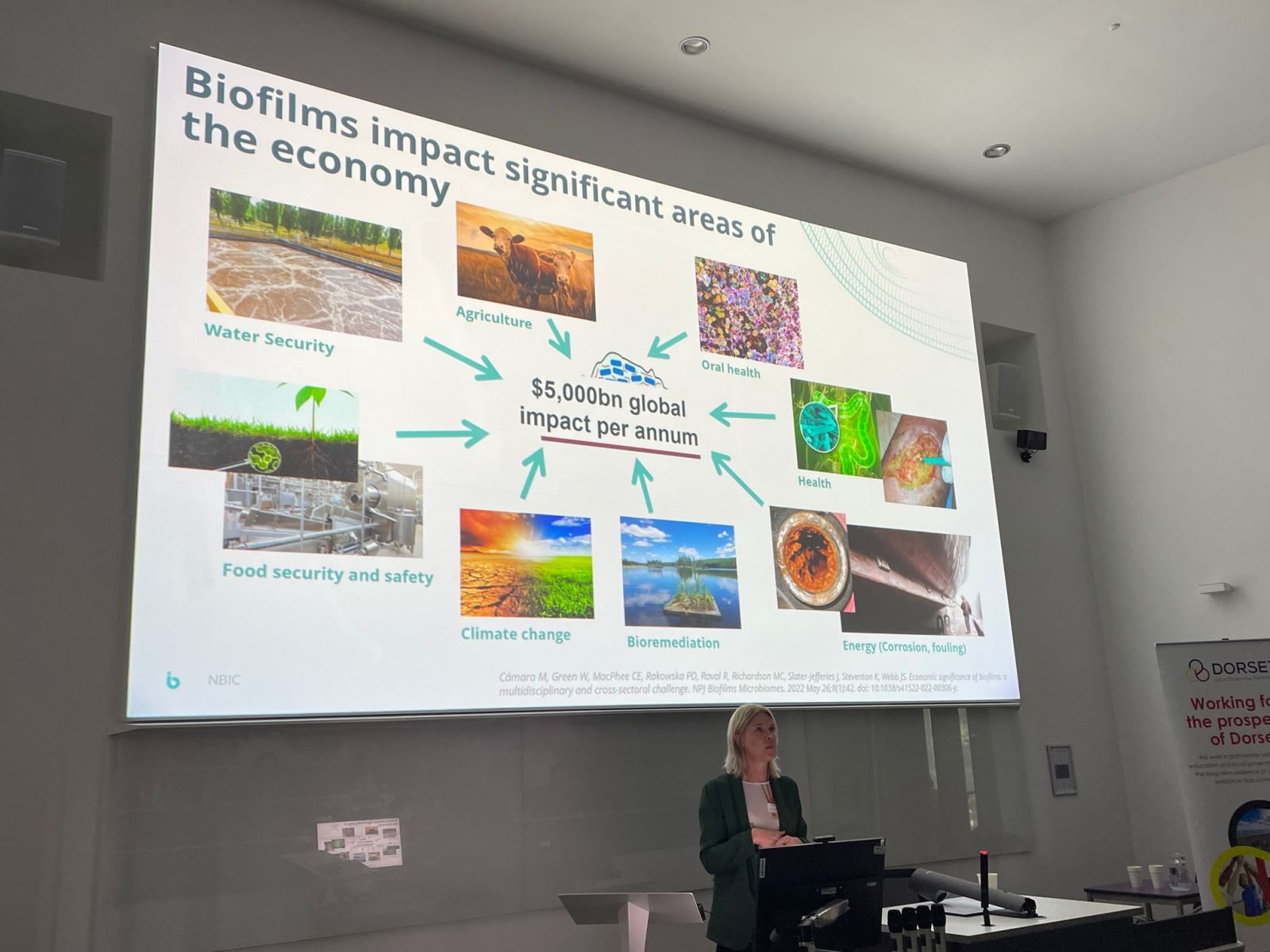The One Health 2024 ‘We Mean Business’ Conference brought together a range of experts from business, academia and government to look at real-world, commercial applications of the One Health approach. The conference explored how businesses can grow and innovate while also meeting regulations and consumer demand for socially responsible, ethical and environmentally considerate approaches to product development.
One Health acknowledges that the health of humans, animals, plants, and the wider environment are interdependent. Recognised by the World Health Organisation, the approach is established in academic and NGO circles, and Dorset LEP has been working since 2018 to champion opportunities for businesses in our part of the world.
Highlighting One Health and “Responsible Innovation”
Shining a spotlight on responsible Innovation is essential for future business growth, encouraging businesses to incorporate customer centred design into the development and deployment of new products, while considering ethical aspects throughout the innovation process. The recent introduction of the UK’s Environment Act will impact on all new product development regardless of business sector; with clear links back to ‘One Health’ and the interconnectedness of plant, human, animal and environmental health. The Act will be a key driver for this new approach, requiring developers to enhance biodiversity account of impact on air and water quality, resource efficiency, and waste reduction.

Chair of Dorset LEP, Cecilia Bufton, sets the Conference in context by saying…
“The One Health approach combined with responsible innovation, is an opportunity for businesses to plan their growth in a more sustainable way. Conference attendees discussed how a single holistic framework could result in innovative product development that prioritises ecosystem health right from the start – using resources conservatively and reducing pollution, and waste.
Health interconnectedness, disease control methods, environmental pollution, anti-microbial resistance, complex global supply chains, disaster preparedness and resilient energy supply are all examples of One Health issues that have critical implications for our national security and a healthy economy.
Since our first One Health Conference in 2019, we have lived through a global (Covid) pandemic, experienced a free-range egg shortage owing to avian flu, and recognised how the overuse of antibiotics in animal and humans is a major factor in anti-microbial resistance, We have seen how poor human waste management affects our rivers and seas and the knock on effect that has on the building of homes. The interconnectedness of human, animal, plant and environmental health have been front and centre of our daily lives like never before.
It is our aim is to foster the conditions for a one health cluster and work has already begun to build a One Health business (Enterprise) network. There is now real momentum for as an outcome of this year’s Conference.”
 Key themes and outcomes emerging from the Conference include:
Key themes and outcomes emerging from the Conference include:
- A consensus on the importance of bringing together the One Health approach and Responsible Innovation: when combined they can provide a framework that makes sense to businesses looking to consider ethical and environmental aspects, throughout the development process.
- The importance of interdisciplinary collaboration for development and growth: One Health 24 facilitated partnerships, such as the potential future collaboration between BirthGlide (human health) and Synergy Farm Health (animal health), highlighting how businesses can connect with government, academia, and various industries to tackle global health challenges.
- Momentum and support for the Dorset LEP-led One Health Enterprise Network: This initiative brings together businesses, academia, and government to develop resilient, ethical products across multiple sectors, promoting responsible and sustainable solutions to our global challenges.
Topics presented at the Conference ranged from sustainable enterprise through responsible innovation, human health innovation, building a clean-green life cycle in new product development and understanding the Environment Act and its impact on business.
 With keynote speakers and their presentations including:
With keynote speakers and their presentations including:
- Prof. Lee Miles - Deputy Dean of Bournemouth University Business School and Professor of Crisis and Disaster Management: "Practical applications of One Health.”
- David Bream - Professor of Innovation, University of Southampton & experienced entrepreneur, founder of SETsquared: “Connected Healthcare Incubator & Accelerator: How responsible Innovation and business can work together.”
- Jo Slater-Jefferies - CEO National Biofilms Innovation Centre: “Delivering global leadership in responsible innovation for Biofilm technologies.”
- Tilak Ginige - Senior Lecturer in Environmental Law, Bournemouth University: “The Environment Act – Positive Regulatory Levers for Innovation.”
- Paul Jones - Senior Investment Manager Regional Funds – British Business Bank.
- Cecilia Bufton – Chair of Dorset Local Enterprise Partnership.
Businesses in attendance also had the opportunity to showcase their products and services as part of a Marketplace and during ‘open mic’ Q&A sessions.
Watch our round-up film clip of the One Health 24 Conference click here.
To find out more about the work of Dorset LEP and its One Health Enterprise Network please see here.
ENDS
For further information:
Please contact Katie Wilton Dorset LEP Communications Manager: DorsetLEP@bournemouth.ac.uk
About Dorset LEP:
Dorset Local Enterprise Partnership (LEP) is a business led private and public sector partnership, promoting local economic growth and prosperity. Find out more here.
About One Health:
• One Health is an integrated, unifying approach that aims to sustainably balance and optimize the health of people, animals and ecosystems.
• It recognizes that the health of humans, domestic and wild animals, plants, and the wider environment (including ecosystems) are closely linked and interdependent as defined by the World Health Organization (WHO).
• The One Health Enterprise Network led by Dorset LEP aims to work with partners to develop a framework for industry, academia, and policymakers to guide the design, development, and implementation of new ideas and products.
• A One Health approach promotes 'ethical' and 'clean' innovation to tackle global challenges like sustainable food production, pollution, and climate change. Examples of applications include new surveillance and disease control methods. Find out more here.